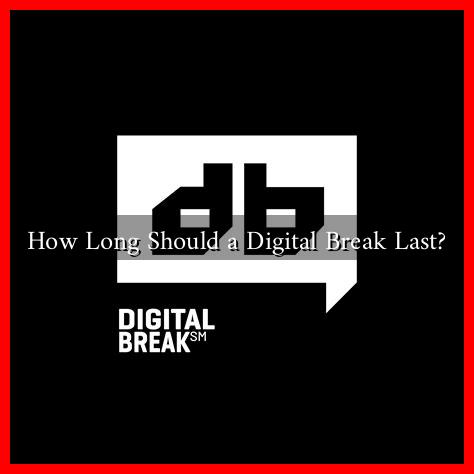-
Table of Contents
How Long Should a Digital Break Last?
In our hyper-connected world, the concept of a digital break has gained significant traction. With the constant barrage of notifications, emails, and social media updates, many individuals are beginning to recognize the need for a reprieve from their screens. But how long should a digital break last? This article explores the optimal duration for a digital detox, the benefits of taking breaks, and practical tips for implementing them effectively.
The Importance of Digital Breaks
Digital breaks are essential for mental health and overall well-being. Research indicates that excessive screen time can lead to various issues, including anxiety, depression, and sleep disturbances. According to a study published in the journal *Computers in Human Behavior*, individuals who spend more than two hours a day on social media are at a higher risk of experiencing mental health problems.
Taking a break from digital devices can help mitigate these risks and promote a healthier lifestyle. Here are some key benefits of digital breaks:
- Improved Focus: Stepping away from screens can enhance concentration and productivity.
- Better Sleep: Reducing screen time, especially before bed, can lead to improved sleep quality.
- Enhanced Relationships: Digital breaks encourage face-to-face interactions, strengthening personal connections.
- Increased Creativity: Time away from screens can foster creativity and innovative thinking.
How Long Should a Digital Break Last?
The duration of a digital break can vary based on individual needs and circumstances. Here are some common recommendations:
- Short Breaks (5-30 minutes): Ideal for daily resets, these brief pauses can help clear your mind and reduce stress. Consider stepping away from your device during lunch or taking a short walk.
- Daily Breaks (1-2 hours): Setting aside a couple of hours each day to disconnect can significantly improve mental clarity and emotional well-being. Use this time for hobbies, exercise, or spending time with loved ones.
- Weekly Breaks (24 hours): A full day without screens can provide a substantial reset. Many people choose to disconnect on weekends, allowing them to recharge and reconnect with the physical world.
- Extended Breaks (1 week or more): For those feeling overwhelmed, a longer digital detox can be beneficial. This could involve a vacation where screens are limited or a dedicated retreat focused on mindfulness and self-care.
Case Studies and Real-Life Examples
Several individuals and organizations have successfully implemented digital breaks, showcasing their benefits:
- Cal Newport: The author of *Digital Minimalism* advocates for a 30-day digital detox, encouraging individuals to evaluate their relationship with technology and eliminate unnecessary distractions.
- Tech Companies: Some companies, like Basecamp, have adopted policies that encourage employees to take regular breaks from screens, resulting in increased productivity and job satisfaction.
- Personal Stories: Many individuals report feeling rejuvenated and more connected to their surroundings after taking a week-long break from social media, leading to improved mental health and well-being.
Practical Tips for Implementing a Digital Break
To make the most of your digital break, consider the following strategies:
- Set Clear Boundaries: Define specific times when you will disconnect from your devices.
- Engage in Offline Activities: Fill your break time with hobbies, exercise, or reading to keep your mind engaged.
- Communicate Your Intentions: Let friends and family know about your digital break to manage expectations and encourage support.
- Reflect on Your Experience: After your break, take time to assess how you feel and what you learned about your relationship with technology.
Conclusion
In conclusion, the duration of a digital break can vary widely based on individual preferences and needs. Whether it’s a short daily pause or an extended retreat, taking time away from screens is crucial for mental health and well-being. By understanding the benefits and implementing practical strategies, individuals can cultivate a healthier relationship with technology. As we navigate an increasingly digital world, prioritizing these breaks can lead to a more balanced and fulfilling life.
For more insights on managing screen time and improving mental health, consider visiting MentalHealth.gov.

